Filter by

East Coast (N.Z.) historical records
- Edition
- -
- ISBN/ISSN
- -
- Collation
- 92 p. 25 cm,
- Series Title
- -
- Call Number
- -
- Edition
- -
- ISBN/ISSN
- -
- Collation
- 92 p. 25 cm,
- Series Title
- -
- Call Number
- -
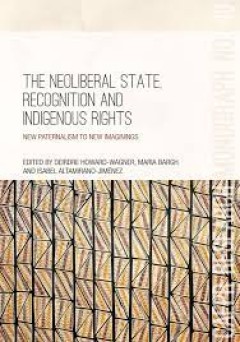
The Neoliberal State, Recognition and Indigenous Rights New paternalism to n…
The impact of neoliberal governance on indigenous peoples in liberal settler states may be both enabling and constraining. This book is distinctive in drawing comparisons between three such states—Australia, Canada and New Zealand. In a series of empirically grounded, interpretive micro-studies, it draws out a shared policy coherence, but also exposes idiosyncrasies in the operational dynamic…
- Edition
- -
- ISBN/ISSN
- -
- Collation
- -
- Series Title
- -
- Call Number
- -
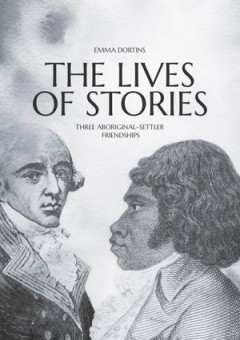
The Lives of Stories: Three Aboriginal-Settler Friendships
The Lives of Stories traces three stories of Aboriginal–settler friendships that intersect with the ways in which Australians remember founding national stories, build narratives for cultural revival, and work on reconciliation and self-determination. These three stories, which are still being told with creativity and commitment by storytellers today, are the story of James Morrill’s adopti…
- Edition
- -
- ISBN/ISSN
- 9781760462406
- Collation
- -
- Series Title
- -
- Call Number
- 994 DOR l
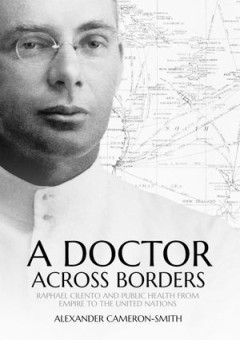
A Doctor Across Borders : Raphael Cilento and public health from empire to th…
In his day, Raphael Cilento was one of the most prominent and controversial figures in Australian medicine. As a senior medical officer in the Commonwealth and Queensland governments, he was an active participant in public health reform during the inter-war years and is best known for his vocal engagement with public discourse on the relationship between hygiene, race and Australian nationhood.…
- Edition
- -
- ISBN/ISSN
- 9781760462642
- Collation
- -
- Series Title
- -
- Call Number
- -
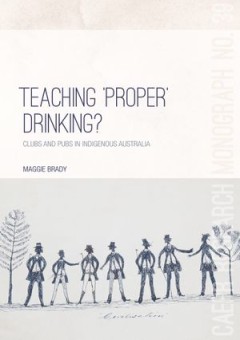
Teaching ‘Proper’ Drinking? Clubs and pubs in Indigenous Australia
"In Teaching ‘Proper’ Drinking?, the author brings together three fields of scholarship: socio-historical studies of alcohol, Australian Indigenous policy history and social enterprise studies. The case studies in the book offer the first detailed surveys of efforts to teach responsible drinking practices to Aboriginal people by installing canteens in remote communities, and of the purchase…
- Edition
- -
- ISBN/ISSN
- 9781760461577
- Collation
- -
- Series Title
- -
- Call Number
- -
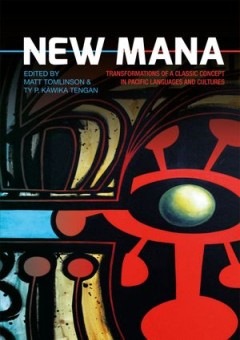
New Mana: Transformations of a Classic Concept in Pacific Languages and Cultures
Mana’, a term denoting spiritual power, is found in many Pacific Islands languages. In recent decades, the term has been taken up in New Age movements and online fantasy gaming. In this book, 16 contributors examine mana through ethnographic, linguistic, and historical lenses to understand its transformations in past and present. The authors consider a range of contexts including Indigenous s…
- Edition
- -
- ISBN/ISSN
- 9781760460075
- Collation
- -
- Series Title
- -
- Call Number
- 400 TEN n
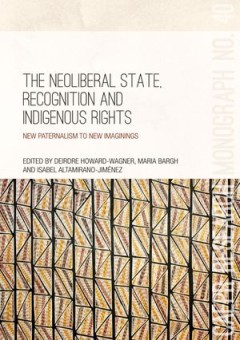
The Neoliberal State, Recognition and Indigenous Rights: New paternalism to n…
The impact of neoliberal governance on indigenous peoples in liberal settler states may be both enabling and constraining. This book is distinctive in drawing comparisons between three such states—Australia, Canada and New Zealand. In a series of empirically grounded, interpretive micro-studies, it draws out a shared policy coherence, but also exposes idiosyncrasies in the operational dynamic…
- Edition
- -
- ISBN/ISSN
- -
- Collation
- -
- Series Title
- -
- Call Number
- 994 NEO n
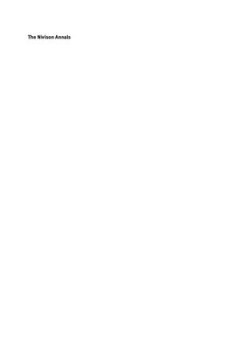
The Nivison Annals
In his last essay just weeks before his death at the age of 91, David S. Nivison says, "Breaking into a formal system - such as a chronology - must be like breaking into a code. If you are successful, success will show right off." Since the late 1970's Nivison has focused his scholarship on breaking the code of Three Dynasties (Xia, Shang, Zhou) chronology by establishing an innovative methodol…
- Edition
- -
- ISBN/ISSN
- 9781501505393
- Collation
- -
- Series Title
- -
- Call Number
- -
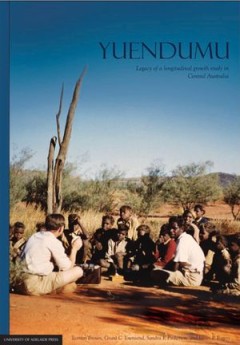
Yuendumu: Legacy of a Longitudinal Growth Study in Central Australia
This book provides a comprehensive account of a unique pioneering longitudinal study of human growth that continues to contribute to our knowledge and raise new questions 60 years after it commenced. Although over 200 scientific publications have arisen from the study, this book describes, in a single volume, the key researchers involved, the Australian Aboriginal people from Yuendumu who parti…
- Edition
- -
- ISBN/ISSN
- 9780987073006
- Collation
- -
- Series Title
- -
- Call Number
- 993 YUE y

A Doctor Across Borders : Raphael Cilento and public health from empire to th…
In his day, Raphael Cilento was one of the most prominent and controversial figures in Australian medicine. As a senior medical officer in the Commonwealth and Queensland governments, he was an active participant in public health reform during the inter-war years and is best known for his vocal engagement with public discourse on the relationship between hygiene, race and Australian nationhood.…
- Edition
- -
- ISBN/ISSN
- 9781760462642
- Collation
- -
- Series Title
- -
- Call Number
- -
 Computer Science, Information & General Works
Computer Science, Information & General Works  Philosophy & Psychology
Philosophy & Psychology  Religion
Religion  Social Sciences
Social Sciences  Language
Language  Pure Science
Pure Science  Applied Sciences
Applied Sciences  Art & Recreation
Art & Recreation  Literature
Literature  History & Geography
History & Geography